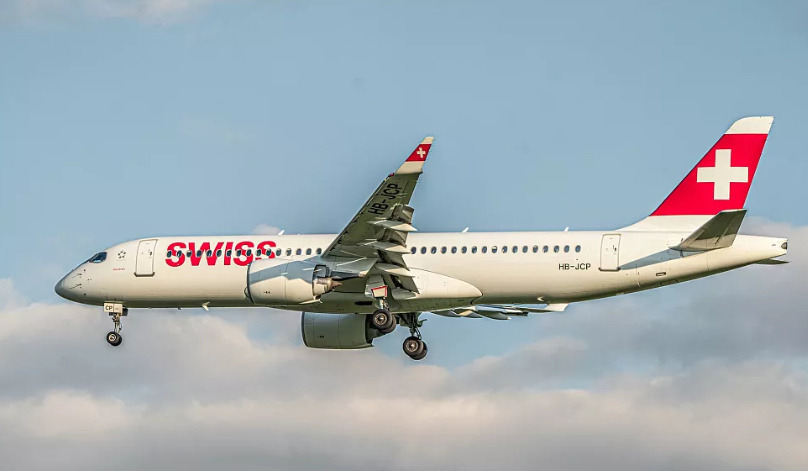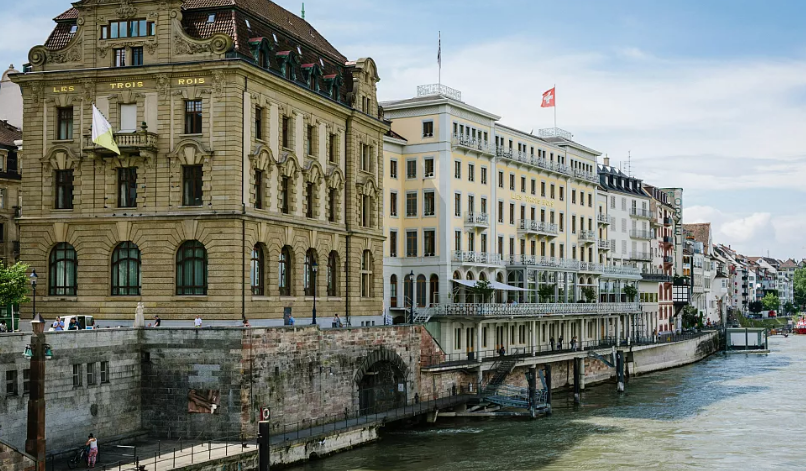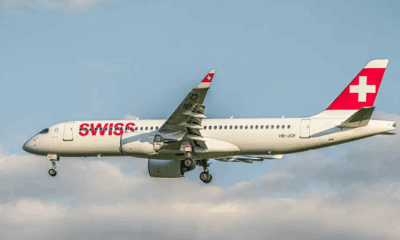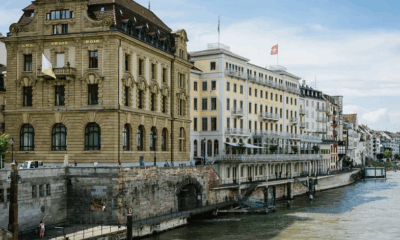Travel
Spanish Village Uses Olive Trees and Digital Nomads to Reverse Decline
Travel
Swiss Air Cancels Over 1,400 Flights Amid Europe-Wide Pilot Shortage

Travellers planning to fly through Switzerland this summer may face unexpected disruptions as Swiss International Air Lines, the country’s national carrier, confirmed it will cancel approximately 1,400 flights between now and October due to an ongoing shortage of pilots.
The airline announced that the schedule reductions will impact numerous short-haul routes departing from Zurich and Geneva, with several long-haul services—such as those to Chicago and Shanghai—also being scaled back. Seasonal routes, including summer flights to Hurghada in Egypt, have been suspended entirely.
In a statement, Swiss said it “deeply regrets” the cancellations and is implementing a series of short-term measures to mitigate the pilot shortfall. These include a voluntary retirement deferral programme, a vacation buyback scheme, and an appeal for part-time pilots to increase their hours. The airline is also collaborating with its pilot union, Aeropers, to improve roster flexibility and reduce fatigue-related last-minute absences.
Swiss estimates it needs around 70 additional full-time pilots to meet current demand. The airline has pledged to notify affected passengers as early as possible. Rebookings will be offered across Swiss, the wider Lufthansa Group, and Star Alliance partners—or on any available carrier if necessary. Full refunds are also being offered.
The announcement comes as several European airlines grapple with similar staffing constraints, raising concerns that this summer could see widespread flight disruptions across the continent.
KLM, the Dutch national carrier, recently revealed it is struggling to staff long-haul flights despite having a record number of pilots on its roster. In response, some Air France pilots are temporarily flying select KLM routes, including the busy Amsterdam–New York corridor, from July through October.
Meanwhile, British Airways and easyJet are actively recruiting and offering competitive packages to attract new pilots. British Airways has even pledged to cover pilot training costs—up to €100,000—for up to 60 candidates annually, as part of efforts to expand its ranks.
The pilot shortage has been exacerbated by the COVID-19 pandemic, which paused new training and prompted many pilots to retire early. The industry has yet to fully recover. According to consulting firm Oliver Wyman, the global aviation sector could face a shortfall of nearly 80,000 pilots by 2032. In Europe alone, the deficit may reach 19,000.
With summer travel demand rising, experts advise passengers to book early, prepare for potential schedule changes, and monitor airline communications closely to secure the best alternatives in case of cancellations or delays.
Travel
Basel Prepares to Host Eurovision as Fans from 80 Countries Arrive

The city of Basel is set to take centre stage next week as it hosts the 69th edition of the Eurovision Song Contest. From 13 to 17 May, 37 countries will compete at the St. Jakobshalle arena, drawing tens of thousands of visitors and turning the Swiss city into a global hotspot for music and celebration.
This year marks the first time Switzerland has hosted the contest since 1989, and anticipation is running high. Organisers report that fans from 80 different countries will be present for the live shows, with a total crowd of up to 50,000 expected to arrive in the coming days.
Swiss fans have purchased the highest number of tickets, eager to welcome the event back home. Germany follows closely behind, with large contingents also coming from the United Kingdom, France, and Spain. The contest remains a powerful draw across Europe and beyond, known for its extravagant performances and electric atmosphere.
As the city prepares for the influx, accommodation prices have surged dramatically. An analysis by sports news outlet Wettfreunde.net, which examined over 1,000 listings on Booking.com and Airbnb, reveals steep increases in lodging costs during the contest week.
For a six-night stay from 12 to 18 May, Booking.com listings average €6,024 — a 139% jump compared to the week before and a 137% rise over the week after. Airbnb prices are also up significantly, with an average cost of €1,804, representing a 130% and 164% increase respectively.
Some listings have reached eye-watering levels. The most expensive property on Airbnb is a loft just 2.5 kilometres from the venue, priced at €67,369 for six nights. On Booking.com, a studio apartment eight kilometres from the arena is listed at €21,906 for the same period.
Despite the soaring rates, budget options do exist — though they remain costly by regular standards. The cheapest available room on Booking.com is a double in a capsule hotel near the venue for €1,178, while Airbnb’s least expensive listing is a €252 apartment located 30 kilometres away.
With the stage nearly set, Basel is bracing for a week of music, spectacle, and international flair as Eurovision fever sweeps the city once more.
Will you be tuning in to the contest or following the excitement from afar?
Travel
Rome Braces for Travel Disruptions Following the Death of Pope Francis

Travellers to Rome over the coming weeks should expect significant disruptions and closures at some of the city’s most iconic religious sites following the death of Pope Francis on April 21.
The Vatican confirmed that Pope Francis, born Jorge Mario Bergoglio in Argentina, died on Monday after suffering a stroke that led to a coma and subsequent heart failure. His passing has set in motion a series of deeply traditional rituals, including a funeral, public mourning, and the election of a new pope.
Among the immediate impacts is the closure of the Sistine Chapel, which will be used exclusively by the College of Cardinals for the conclave—the secretive process to elect the next pope. The Vatican announced the chapel will close to the public from April 28 and remain inaccessible until several days after the conclave concludes, likely reopening in mid-May.
Other nearby attractions will also see changes. The Vatican Museums will remain open except for April 26, when they will close to honor the Pope’s funeral. However, access to the Sistine Chapel will be suspended, and security will be tight throughout Vatican City. Tours of the Vatican Gardens and the Necropolis of the Via Triumphalis are also suspended due to increased security measures as cardinals travel between the chapel and their accommodations.
St. Peter’s Basilica is currently hosting thousands of mourners, with the late pontiff’s body lying in state until April 25. Public access is possible from 7 a.m. to midnight on April 24, and from 7 a.m. to 7 p.m. on April 25. However, long queues and strict dress codes are in place. Parts of the basilica, including the dome, are closed to visitors, and all guided tours are suspended.
The Pope’s funeral is scheduled for April 26 at St. Peter’s Square and is expected to draw millions. Hotel and flight prices have already begun to climb in anticipation of the influx of visitors, many of whom are traveling to witness what is considered a historic and spiritual milestone.
Following the funeral, attention will turn to the election of the new pope. Tourists and faithful can witness the traditional smoke signals from the Sistine Chapel chimney—black indicating no decision, and white signaling that a new pope has been chosen. Crowds are expected to gather in large numbers in St. Peter’s Square for this moment.
While some visitors may be disappointed by limited access to key religious sites, others are embracing the rare opportunity to witness the Vatican during a pivotal moment in modern Church history.
-

 Business1 year ago
Business1 year agoSaudi Arabia’s Model for Sustainable Aviation Practices
-

 Business1 year ago
Business1 year agoRecent Developments in Small Business Taxes
-

 Politics1 year ago
Politics1 year agoWho was Ebrahim Raisi and his status in Iranian Politics?
-

 Business11 months ago
Business11 months agoCarrectly: Revolutionizing Car Care in Chicago
-

 Business11 months ago
Business11 months agoSaudi Arabia: Foreign Direct Investment Rises by 5.6% in Q1
-

 Technology1 year ago
Technology1 year agoComparing Apple Vision Pro and Meta Quest 3
-

 Politics1 year ago
Politics1 year agoIndonesia and Malaysia Call for Israel’s Compliance with ICJ Ruling on Gaza Offensive
-

 Sports10 months ago
Sports10 months agoKeely Hodgkinson Wins Britain’s First Athletics Gold at Paris Olympics in 800m






























